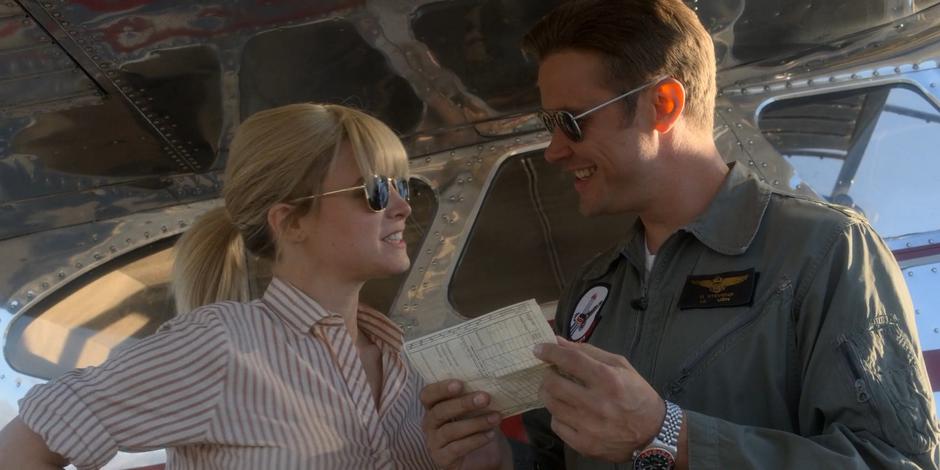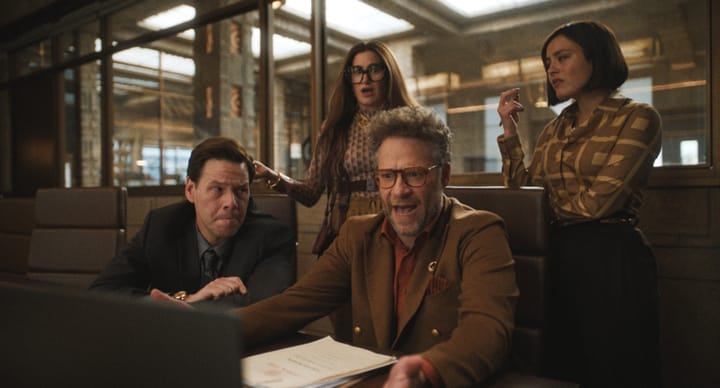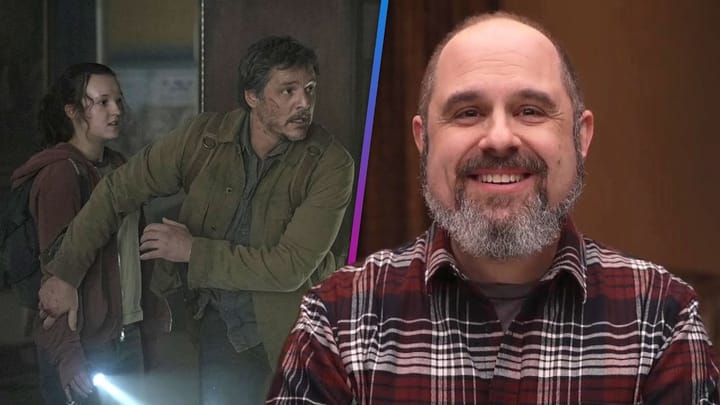Bringing It Home

I’ve just completed the second season of For All Mankind (FAMK) on AppleTV+.
And Wow!
NOW, BEFORE I GET INTO THE WHY, HERE IS YOUR SPOILER WARNING. PLOT DETAILS WILL BE DISCUSSED AND REVEALED THAT COULD SPOIL YOUR VIEWING EXPERIENCE IF YOU HAVEN’T SEEN THE SHOW YET.
The show has an eclectic mix of storytelling, blending serialized faux-historical drama, melodrama, and character study into an uneven but mostly compelling show.
And while FAMK isn’t a flawless show with balance issues and a few overwrought storylines, when it is hitting the right notes it is a top-notch show (And it hits the high notes more often than not). Nothing exemplifies this more than Gordo and Tracy story arc climax (which coincides with the season two arc climax).
Their story arc, while disparate at times from the rest of the show, in hindsight is wonderful storytelling with an absolutely heart-wrenching conclusion that I am totally envious of it’s near perfection. It’s one that every writer dreams of composing. A case of imperfect story telling leading to near perfection of an ending.
The Gordo and Tracy season 2 storylines — picking up from the fallout of season 1 — begin as smaller side stories that takes their time to establish, not forcing or rushing to show where it’s going. With all the markers of a B or C story— smaller scale, focus on personal struggle, and bad habits that could lead to endangering themselves and others. It touched on the darker, destructive side of the quest of exploration.
This proved to be the ultimate cover though as their stories would end up being the emotional thread of the season (and maybe the series).
But before we get to what they meant, I want to discuss the pacing of the Gordo storyline against that of the show in whole, which is just superb. It starts slow, real slow. We are catching up with our main cast of characters, several years removed from the ending of the first season, with sequences filing us in on their progress in life since then. Everyone has significant changes over the ten-year span except, most interestingly, Astronaut Gordo Stevens.
While everyone else has moved forward in life, both professionally and personally, with direct connections to the big picture space race, he seems stuck in neutral, lost and confused about his place and purpose in life. He’s a washed up, drunk, divorcee, making a living puttering around legion halls recalling the good old days. But you can tell he hates himself for it.
This starts his progress towards finding fulfillment and purpose, but not before first hitting rockbottom. Each time we join this story, it’s small moments on this journey, but each visit moves forward along this path. We don’t know where it’s going but you really begin to hurt with Gordo.
It never feels rushed and for a time seems to be happening in a vacuum, but I keep wanting more with each checkin. Each moment we get with him, he gradually becomes the most interesting storyline and character, which is high praise when several of the women characters also have fascinating and enthralling stories, like astronaut turned bureaucrat Ellen Wilson (née Waverly).
But while Elen’s story follows a more traditional plot line of external conflict layered against its influence on her internal conflict, Gordo’s struggle is a deep internal conflict, which is a very difficult to convey in a performance medium. And it is handled with subtle truth to how people internalize their struggle that at times externalizes in evident ways.
All around Gordo, his friends and family continue to excel and are fulfilled, to the point that they want more and have active ambition to achieve more. Watching them succeed as he flounders is a relatable insecurity to live with, especially when he had it all but his self-destructive ways neutered that motivation.
While the rest of the show’s narrative, and that of the other character’s, moves forward at a steady pace, we get to slow down and examine how pressure, stress, and success can wear on an individual. And a relationship.
Tracy, Gordo’s former wife, has a similar but opposite path to his story. While he has nothing, Tracy has emerged seemingly having it all— the top of her profession (also an astronaut), the celebrity spotlight, a new endearing husband, and most importantly, purpose.
But while on the surface it is all there, we soon find out that there is something missing. Tracy seems unsettled, even while she has responsibilities and is in high demand she is actually isolated and adrift, much like Gordo, searching for her purpose.
Tracy is a hard character to like at first. She seems like a wild card, who has been pampered and now is entitled, but still not appreciative of everything afforded to her. She still has a chip on her shoulder. But thinking about it more, that’s how many male characters are written, and I have no problem with them or even find them interesting. I didn’t see this at first, as it was a part of the slow build (and some bias), but that perception shifts as the season progresses.
She is a good person but unhappy. Like Gordo.
Their places in the world couldn’t be more different. Gordo is down and out, having lost his bravado, confidence, and marriage. Tracy on the other hand is shinning her brightest, being celebrated as the face of the space program, remarrying a wealthy businessman, and an active astronaut.
But their struggle and desires remain connected. They are still in each other’s lives and crossing paths routinely (because of their children and profession). It's awkward and tense at times, with a lingering hurt and regret, but also a lasting connection deep down.
How the show balanced their relationship was superb. Many things left unspoken, but understood and felt, by both the characters and the audience. There is a longing from them for the old times, for each other, that was done with a deft touch that was obvious but not on the nose. They would talk past the actual issues, but the lingering pain in the subtext. There was a natural personal interaction that would express themselves without being over wrought.

A shared moment before the Run.
This personal interplay slowly created a build that you didn’t even know what was coming. Both get assigned to the moon-base during the same tour, which may feel like an obvious turn, but I didn’t really know what that meant for the story, even though you knew it meant something. There was so much else going on with the main storyline, that it was not evident what was going to happen over all.
But as a late night chance encounter where they rekindle the possible between them, conflict escalates in the main story and the world around them breaks down. They become the last chance of survival for the entire base and possibly the space race.
They were tasked on a time constrained mission to switch over a power source to save the lives of everyone on the base, on the surface of the moon without space suits.
It sounds a bit ridiculous writing it out but in action, heartachingly amazing. That’s because it meant something. Not for the crew of the base, not for the mission, not for the space race, but for these two characters, together. Their story, their journey together, made the melodramatic seem real. Seem worth it. This is the redemption that both of them were looking for and needed. Their destiny if you will. And it was made to happen together.
Wrap themselves in duct tape, standing in that airlock joking, running together on the surface of the moon. It's poetic. It’s heartbreaking. It's fucking beautiful.
Watching their story, their moment together amongst multiple plot lines climaxing all at once, is everything I love about watching shows. The slow build, the small scenes, the small moments, that at the time you couldn’t see the connection, all comes together. Then you realize what their fate is most likely to be, but you hope that it’s not. You hope for it to be different, but deep down know it’s the only satisfying inevitability.
It’s the best of the best to strive for when creating drama. It’s something I work toward every time I write. And it shows that it’s worth sweating the small stuff and taking your time, because even if other parts of your story are a bit uneven, that imperfection can still produce near perfect moments that make it all worth it in the end.





Comments ()